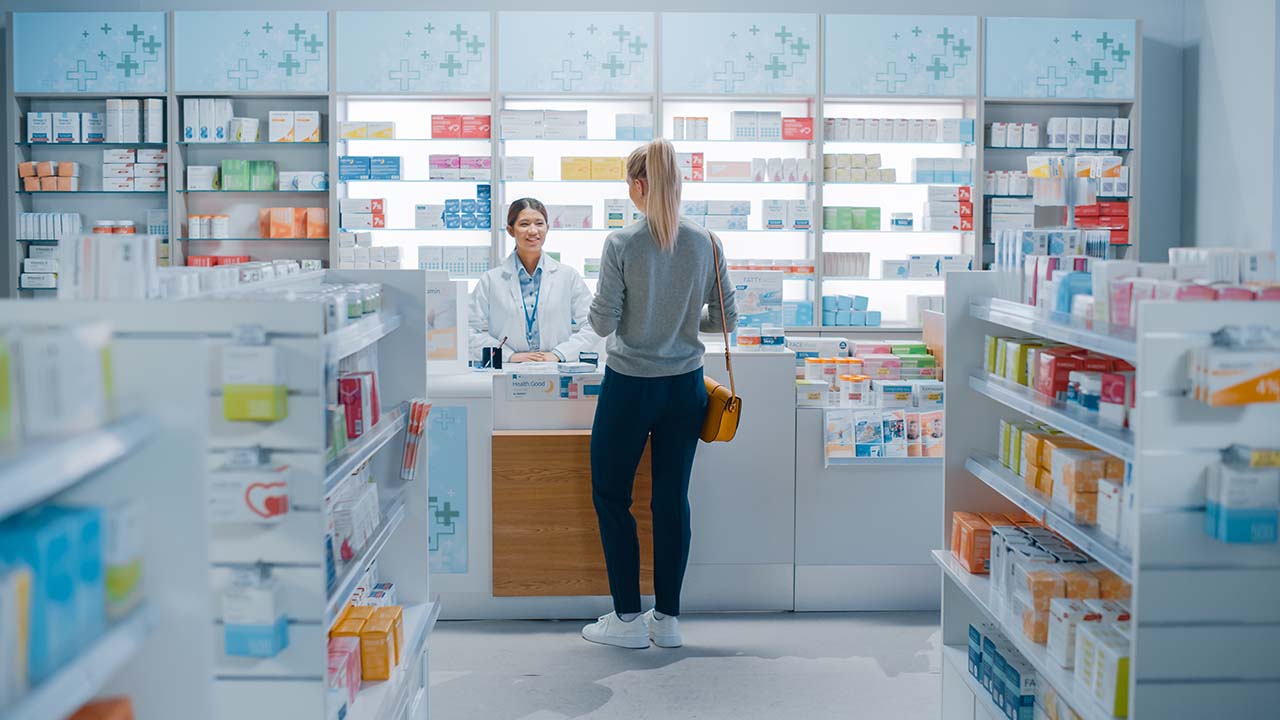In News
Follow this topic
Bookmark
Record learning outcomes
A recent Ipsos survey did a poor job of finding out just how much the public values community pharmacy, argues economist Leela Barham
On 29 December, Ipsos released the results of an NHS England (NHSE) commissioned survey on public perceptions of community pharmacy.1 The survey was run in July 2022 and more than 2,000 people took part, with their responses weighted to be more representative.
The headline messages were underwhelming. Take this for example: “Pharmacy users... are currently satisfied with pharmacy services, and would be comfortable with them providing new services.”
Not too exciting for a survey that cost over £67,000 to produce, as P3pharmacy can exclusively reveal. But just what should Ipsos have been asking?
What people want
Asked what community pharmacies should offer, survey respondents identified key services such as advice about minor health problems and medicines, flu vaccination and blood pressure checks.
Ipsos argues that this “suggests that there is public appetite for using community pharmacies for some functions they would currently see as the domain of GP practices... [and] represents a clear opportunity for expanding the services pharmacies offer”.2
The trouble is, flu vaccinations have been available from community pharmacies for years, with a national community pharmacy flu vaccination advanced service commissioned in 2015. Meanwhile, blood pressure checks through the NHS Community Pharmacy Blood Pressure Check Service started in October 2021.
The opportunities for the services specifically cited as ‘new’ by Ipsos are already being realised – even if they are not always optimised. The survey does not provide evidence that the public wants more and different services.
Nuanced preferences
Reassuringly, survey respondents were positive about their visits to pharmacies. They felt they were treated with respect (87 per cent), were able to get what they needed (87 per cent) and thought the pharmacy was clean and well maintained (87 per cent).
Three-quarters also said they’d be confident in pharmacist prescribing when they have had the treatment before, falling to 56 per cent for newly prescribed medicines. Pathfinders began trialling pharmacist independent prescribing services across England from January 2023.
The survey questions and trial have been a source of frustration for some, with Dr Dalia M Dawoud tweeting: “Why are we still asking about ‘public views’ and ‘piloting’ while there has been extensive research and many pilot studies of views and perceptions about pharmacist prescribing?”
‘New’ services
Eighty-five per cent of respondents who were current or former smokers said they would be comfortable being referred to a community pharmacy for regular support to stop smoking. Yet this contrasts with uptake; the PSNC clinical services dashboard shows hardly any Smoking Cessation Service claims from April 2021 through to September 2022.
Similarly, three-quarters of respondents said they would be comfortable with weight loss support from pharmacies, but there was no evidence on the type of service they’d wish to see.
And it was surprising to see a press release on the survey highlighting the training available to pharmacies to spot signs of cancer, when Ipsos included no questions on attitudes to these services.
Surely it would be more useful to ask what will enable individuals to access support from community pharmacy, if they aren’t already going elsewhere?
Nuanced preferences are needed so that the results can give actionable insights; again, not what the survey delivered.
Ninety per cent said they would feel comfortable seeing a community pharmacist for a minor illness after they’ve spoken to a GP receptionist, and comfortable being referred for an appointment with a pharmacist following an online consultation with a nurse or GP. That’s evident from the Community Pharmacist Consultation Service (CPCS) stats.
PSNC data shows that in the month the survey ran, there were claims for over 92,000 consultations. Why ask if we already know that a lot of people are happy to consult a pharmacist after a referral?
What wasn’t explored is why 10 per cent aren’t comfortable, and what might be done to change that.
Trade-offs
NHSE told us that it is planning to run this questionnaire on an annual basis – but should it? Surveys can be useful if they offer new insights, which in this case is debatable.
What is more valuable from an economics point of view is getting a handle on the trade-offs people are willing to make. It’s easy to say something is important or useful when you’re not asked to put a price on it.
It may be a more complex survey to run, but it could be more worthwhile to ask people what they are willing to actually pay. That doesn’t have to mean pounds and pence; it can be phrased in terms of council tax, or other ways we pay for a service, such as time spent travelling.
Given the constraints on funding available for research into community pharmacy, surely these questions would get us further than a survey content with covering old ground.
What questions should Ipsos have asked about community pharmacy services? Share your views with us at p3pharmacy@1530.com
References
1 Ipsos. (29 December 2022). Public Perceptions Of Community Pharmacy. Retrieved from: https://www.ipsos.com/en-uk/public-perceptions-community-pharmacy
2 Duxbury, K. and Fisher, K. (September 2022). Public Perceptions Of Community Pharmacy: Findings From A Survey With Adults In England Conducted On Behalf Of NHS England. Retrieved from: https://www.ipsos.com/sites/default/files/ct/news/documents/2022-12/public-perceptions-of-community-pharmacy-report_0.pdf

